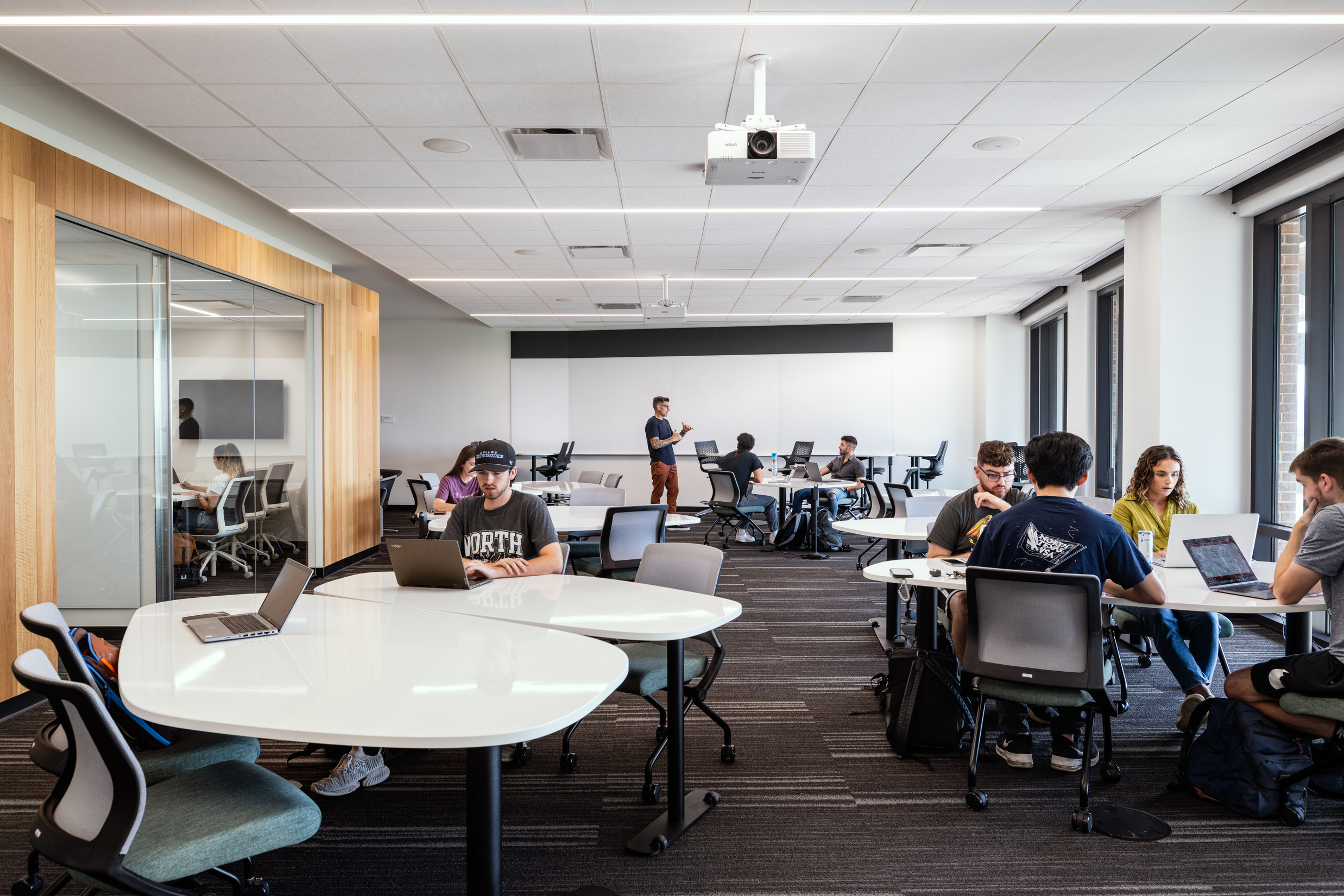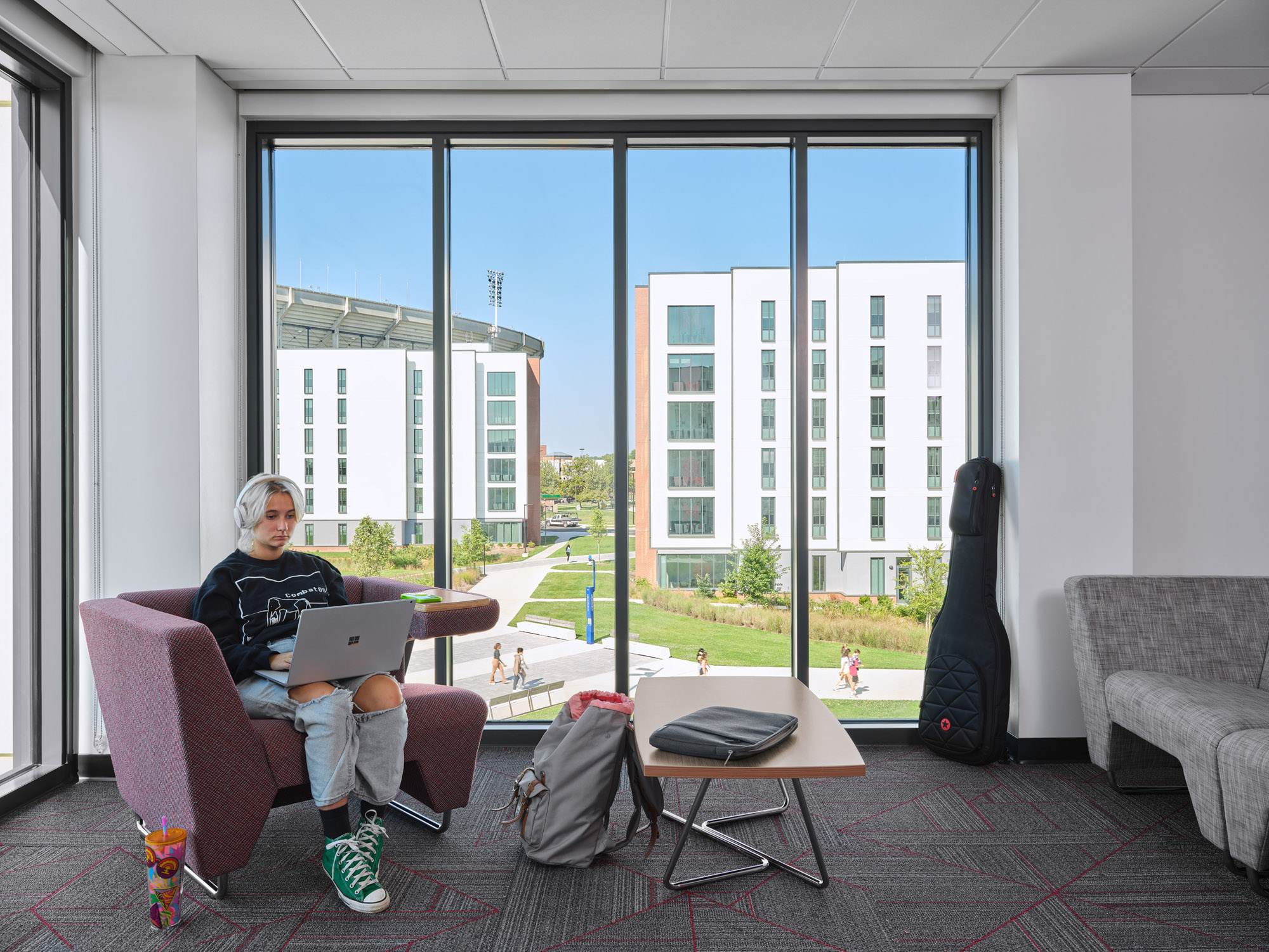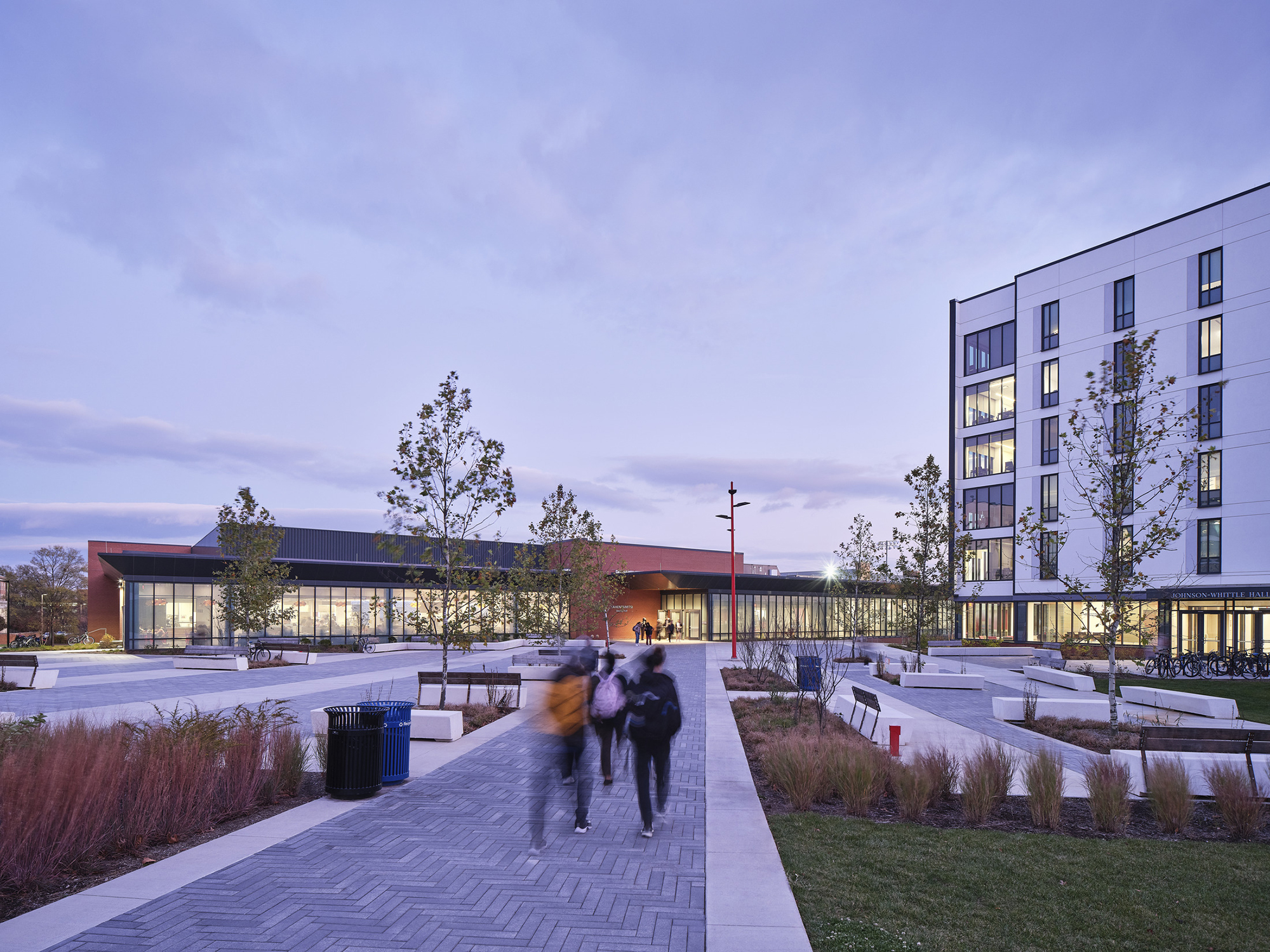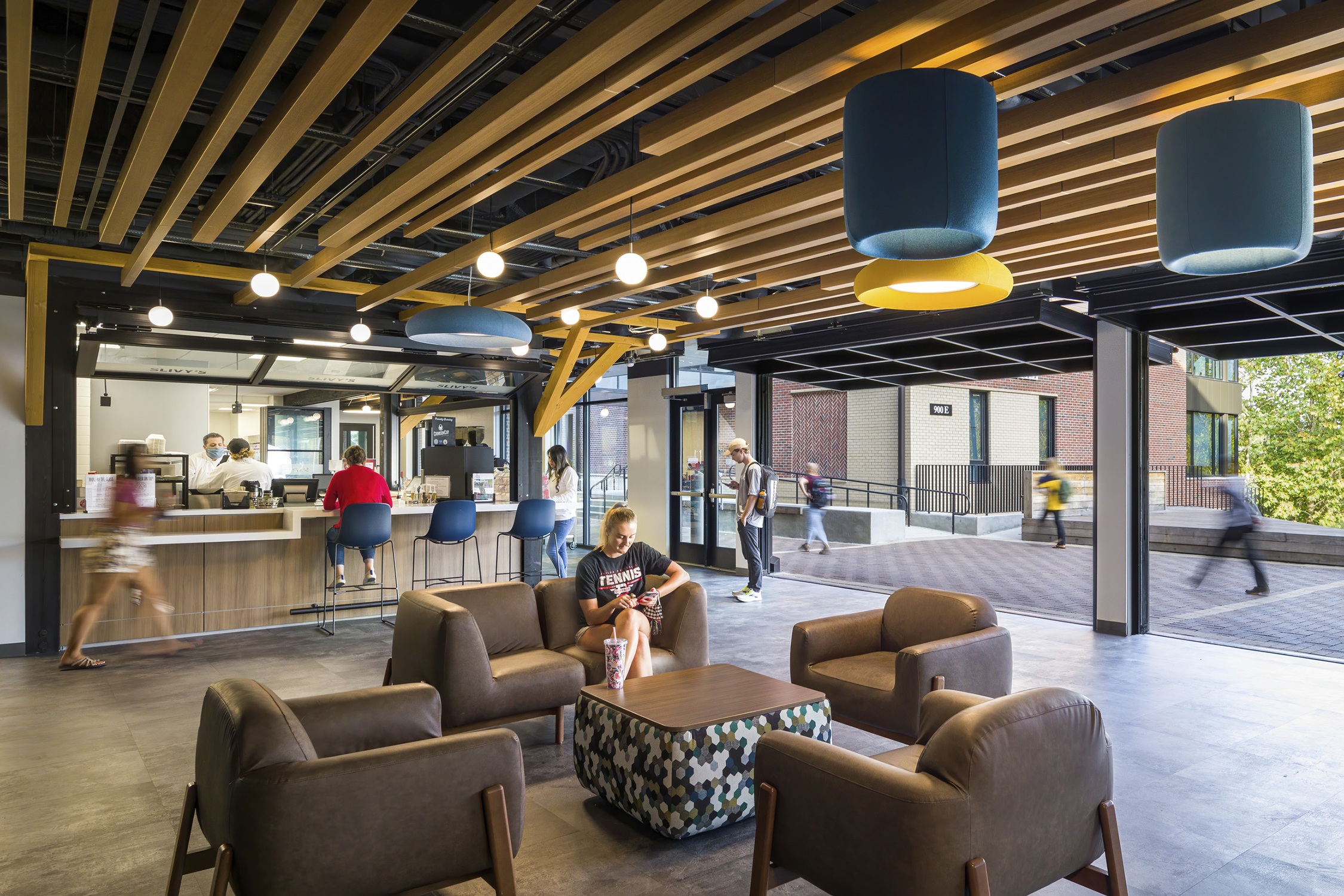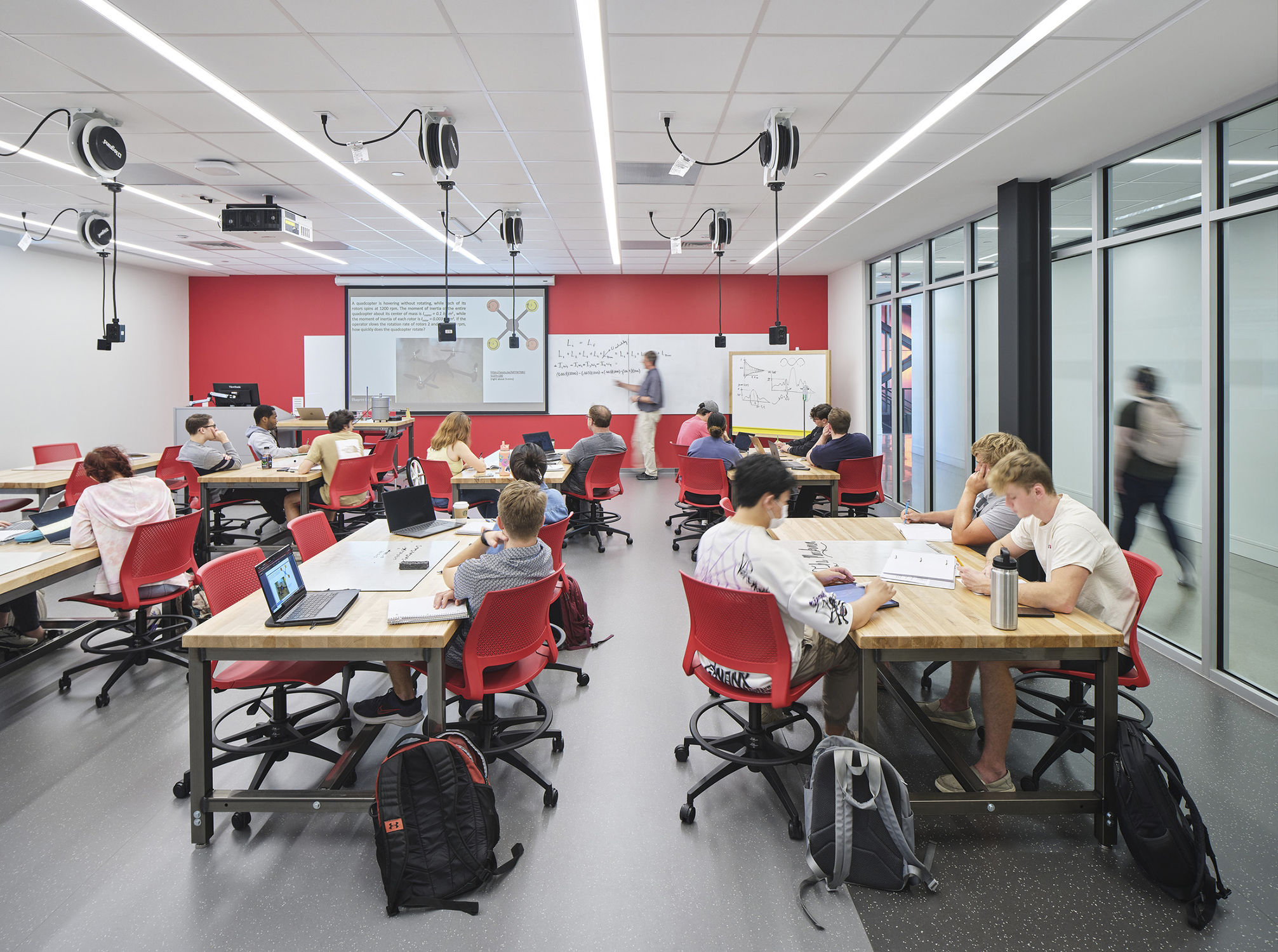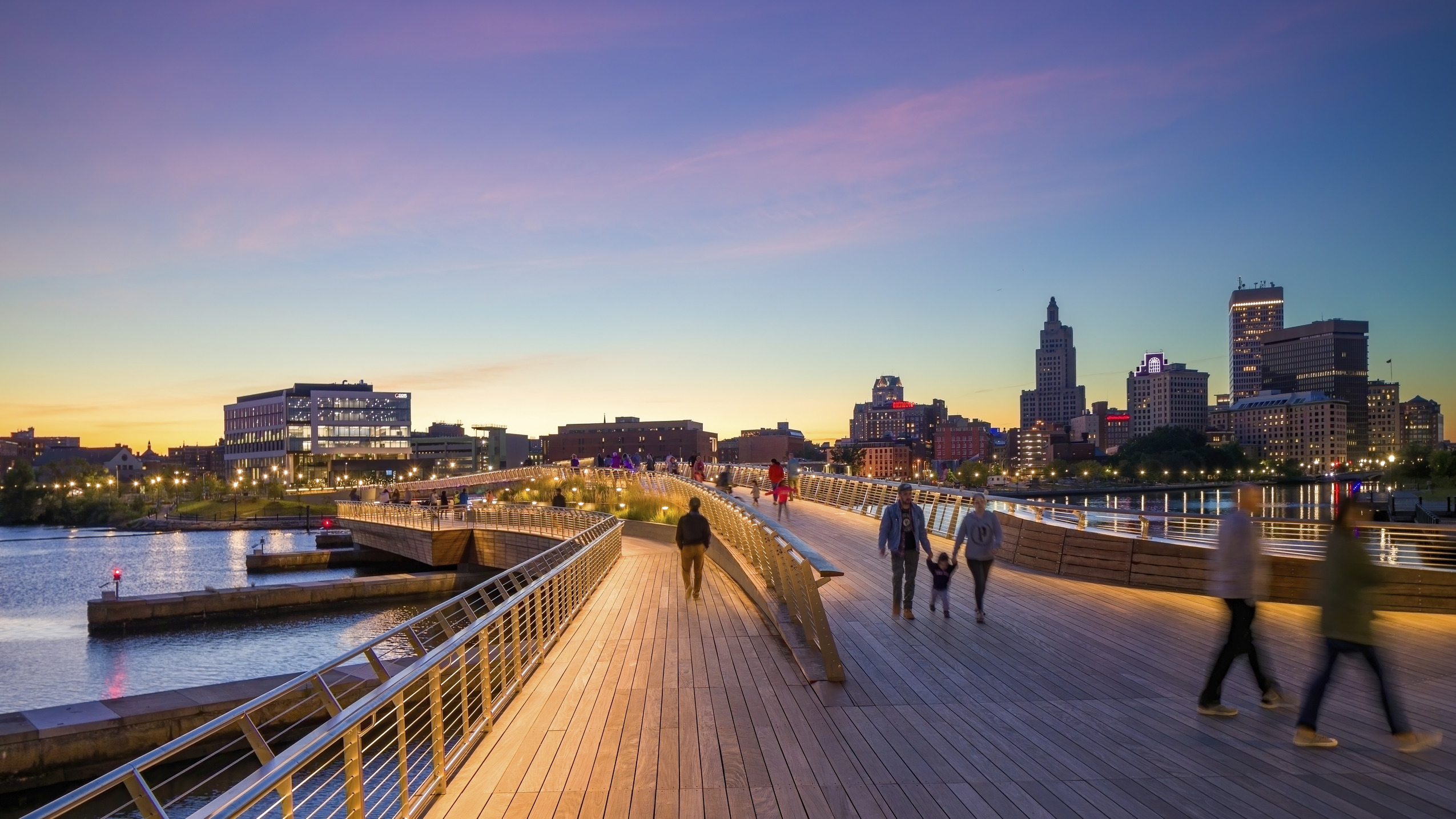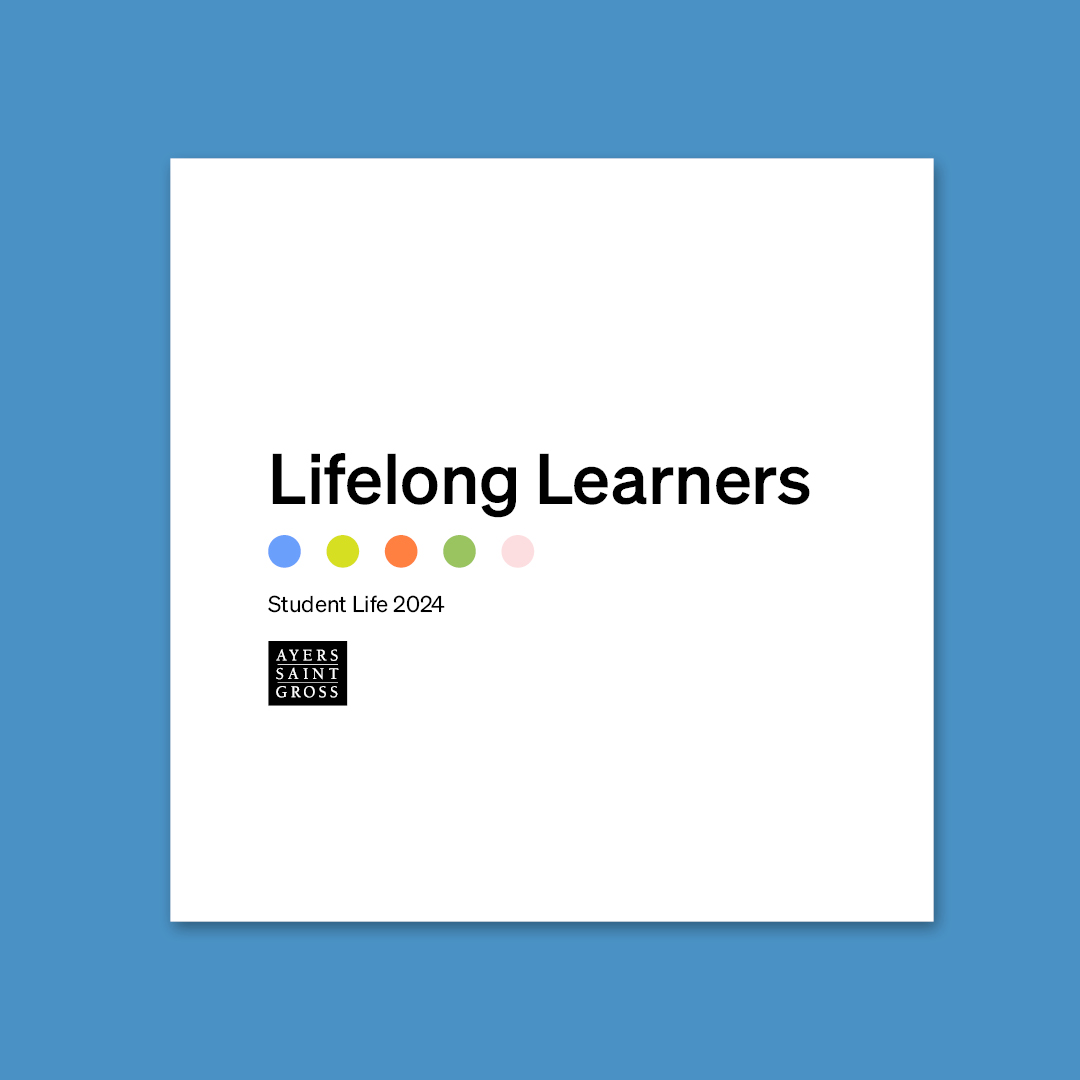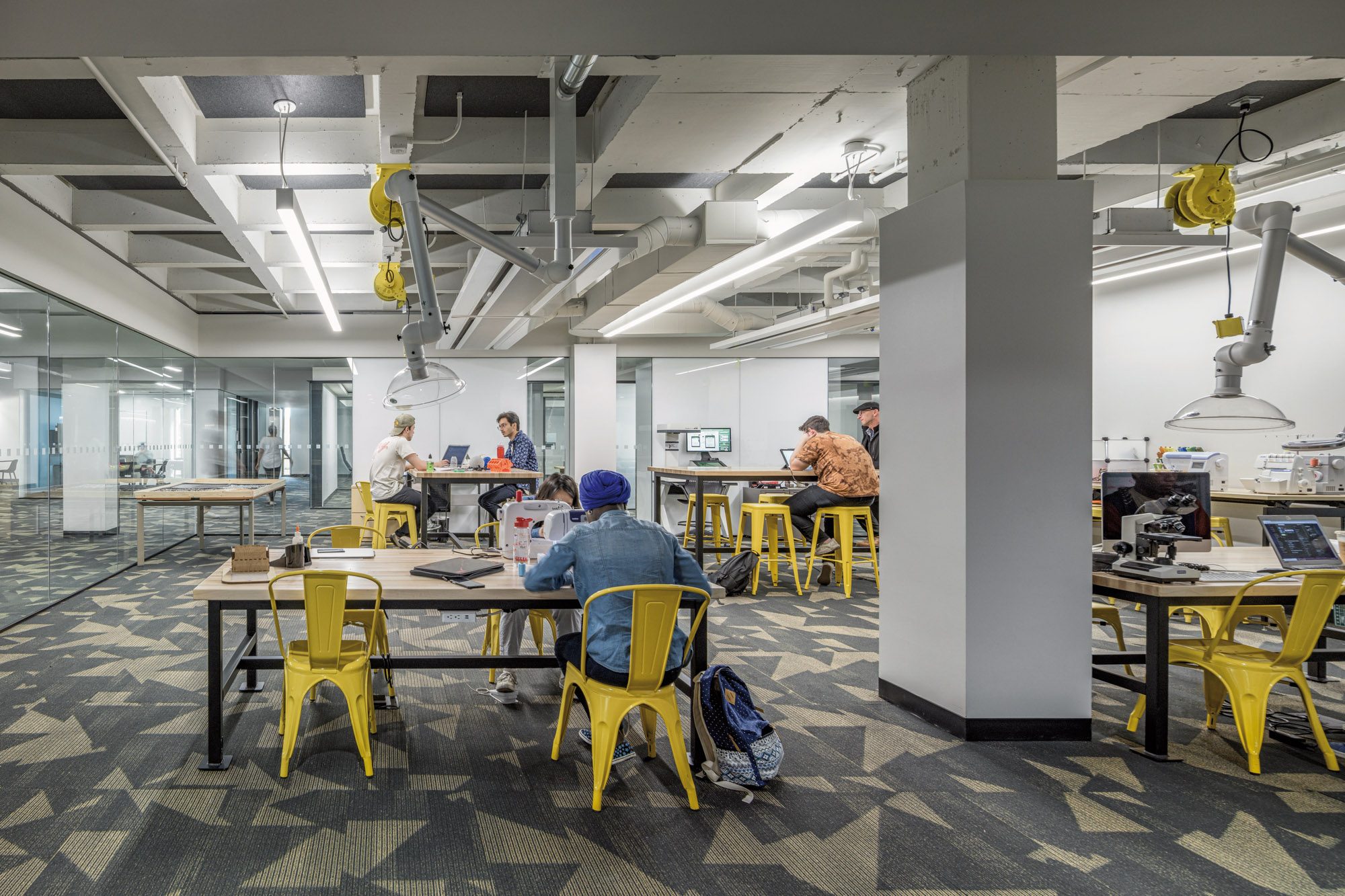As planners and designers primarily focused on creating places for shared knowledge and culture, we strive to stay attuned to the shifting challenges and trends affecting higher education. As we look forward to a new academic year, it’s crucial to keep these challenges and opportunities in mind to develop innovative space solutions that will help our clients remain successful.
Colleges and universities are educating more diverse populations in terms of race, ethnicity, background, and age. The national birthrate fell significantly from 2007 to 2022, resulting in fewer young people of traditional college age, a trend expected to continue beyond 2025.
Additionally, more students are pursuing non-traditional educational paths, earning college credits at community colleges, through advanced placement classes in high school, or via joint degree programs with nearby schools. Online enrollment is increasing as colleges and universities seek to attract students who are returning to college and face challenges related to cost, time, and campus location. Many institutions now offer credit exchange programs where returning students can earn credit for relevant, real-world work experiences.
Young people today have also been prepared differently for college. College-aged students experienced the pandemic during high school, with many schools closing abruptly in March and continuing with virtual classes for the entire 2021-22 school year. Twenty-two percent of high school students feel underprepared for college both academically and emotionally, with an even larger share of first-generation and low-income students reporting they felt unprepared.
An increasing number of young people are self-identifying as neurodivergent, yet accommodations provided via a 504 plan don’t always follow students to college. According to the National Center for College Students with Disabilities, students with any disability or neurodivergence are much less likely to feel welcomed and accepted on their college campuses compared to their peers without disabilities or neurodivergence.
Emotional stress and mental health issues are now the top reasons students consider dropping out of their undergraduate education. At the same time, Gen-Z students demonstrate greater empathy and understanding of the interconnected world around them. They model acceptance of others, selflessness, intention, and awareness – all resilient, durable skills needed for a successful future in an increasingly global, tech-dependent workforce.
Geographically, many colleges and universities are located close to coasts or by bodies of water in extreme weather areas. Campuses in the southeast and southwest are growing in popularity due to their lower tuition costs and warmer climates. However, these areas still face political and climate challenges regarding water, fire, and extreme weather.
Heatwaves, storms, and other extreme weather events impact facility infrastructure and campus operations. This can have financial implications, including rising insurance premiums, supply chain challenges, a scarcity of skilled labor, and reduced funding sources.
For students, climate change has provided new academic and research opportunities. Unfortunately, it has also negatively impacted student health and well-being, resulting in poorer air quality and increased stress from climate-related events.
Technology is evolving rapidly, with increased uses of AI and automation, mass customization, and augmented or virtual reality. For many students, social media has become a space for learning, building relationships, and exchanging ideas.
Colleges and universities must adapt to new ideas around physical gathering as technologies allow for multiple geospatial presences. We no longer have to be physically present in the same place to be together, which could help mitigate some climate change issues.
Due to an increase in political polarization around the country, a college or university’s location might greatly affect its ability to respond to important issues surrounding climate change resilience or globalization. Federal, state, and local politics and the overlapping messages or policies can affect what funding is available for resilience efforts and any support these programs might need.
Changing federal and state policies also affect race and gender dynamics across campuses, DEI efforts, and even the courses, majors, and delivery methods available to students. Political polarization threatens tenure for faculty members, and state and federal legislatures are more vocally influencing decisions around acceptance criteria, funding streams, and board positions.
Keeping these issues in mind, we advise college and university leaders to think strategically and holistically about their campus environments. Some steps to consider include:
- As populations and programs change, consider how building renewals or conversions could be an alternative to new construction, offering both cost savings and ecological benefits.
- Rethink and rebalance space needs across the spectrum, including student spaces, research areas, office spaces, athletics, and recreational facilities. Decrease passive, single-occupant space in favor of active, flexible, and adaptable designs and layouts.
- It may be more cost-effective to add or amend time blocks or to experiment with various delivery models than to increase the physical campus footprint. The value proposition should consider student success and faculty happiness alongside economic advantages.
- Prioritize spaces that promote radical and intentional inclusion by recognizing the diverse needs of the student population and their physical and mental health. Physical space should prioritize relationships over transactions, as relationships in college lead to increased professional success and career satisfaction after college.
Shannon Dowling will expand on many of these trends during a two-hour workshop as part of the Society for College and University Planning 2024 Annual Conference. The workshop, which will be presented with Sustainability Director Allison Wilson and Bryan Alexander of Bryan Alexander Consulting, will take place Monday, July 22, from 9:50 a.m. to 12:10 p.m. Learn more.
Pictured: UNT Frisco’s Frisco Landing and University of Maryland’s Heritage Community, including Yahentamitsi Dining Hall and Johnson-Whittle and Pyon-Chen Residence Halls
